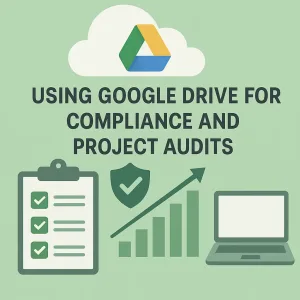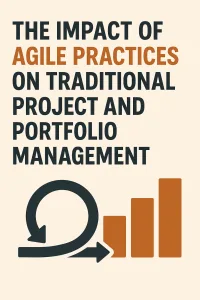Introduction to Planning Control in Project Management
Planning control is a critical component of project management that involves the systematic process of establishing project objectives, defining the necessary steps to achieve those objectives, and continuously monitoring progress to ensure that the project stays on track. It encompasses various activities, including scheduling, resource allocation, risk management, and performance measurement. The primary goal of planning control is to ensure that projects are completed on time, within budget, and to the desired quality standards.
Definition and Role of Planning Control
At its core, planning control refers to the methods and processes used to guide a project from inception to completion. It involves:
- Setting Clear Objectives: Establishing specific, measurable, achievable, relevant, and time-bound (SMART) goals that provide direction for the project.
- Resource Allocation: Identifying and assigning the necessary resources—such as personnel, equipment, and finances—required to achieve project objectives.
- Scheduling: Developing a timeline that outlines when tasks should be completed, ensuring that all project activities are coordinated effectively.
- Monitoring and Adjusting: Continuously tracking project progress against the plan, allowing for adjustments to be made in response to unforeseen challenges or changes in scope.
The role of planning control is to create a structured framework that enables project managers to make informed decisions, mitigate risks, and enhance overall project performance.
Importance of Effective Planning Control for Project Success
Effective planning control is paramount for the success of any project. It provides several key benefits:
- Improved Resource Management: By having a clear plan in place, project managers can optimize the use of resources, reducing waste and ensuring that all team members are working efficiently towards common goals.
- Enhanced Risk Mitigation: Planning control allows for the identification of potential risks early in the project lifecycle, enabling proactive measures to be taken to minimize their impact.
- Increased Accountability: A well-defined plan establishes clear responsibilities and expectations, fostering accountability among team members and stakeholders.
- Better Communication: Planning control facilitates improved communication among project stakeholders, ensuring that everyone is aligned and informed about project progress and any changes that may arise.
Relevance of Monitoring Trends in Planning Control for Future Projects
As the field of project management continues to evolve, staying abreast of emerging trends in planning control is essential for project management professionals and strategists. Several trends are expected to shape planning control, including:
- Increased Use of Automation: The integration of automation tools can streamline planning processes, reduce manual errors, and enhance efficiency.
- Emphasis on Sustainability: Incorporating Environmental, Social, and Governance (ESG) principles into planning control will become increasingly important, aligning project outcomes with broader societal goals.
- Adoption of Advanced Technologies: The use of artificial intelligence (AI) and machine learning (ML) in planning control can significantly improve forecasting accuracy and decision-making capabilities.
By understanding and adapting to these trends, project management professionals can enhance their planning control practices, ultimately leading to more successful project outcomes.
Current State of Planning Control Practices
Planning control within project management is undergoing significant transformation. This section will provide an overview of traditional versus modern practices, examine the tools and software currently in use, and identify common challenges faced by project managers in this critical area.
Overview of Traditional vs. Modern Planning Control Practices
- Traditional Practices: Historically, planning control has relied heavily on linear methodologies, where project managers would create detailed plans at the outset and follow them through to completion. This approach often involved extensive documentation and rigid adherence to timelines and budgets. While effective in stable environments, these methods can struggle to adapt to the dynamic nature of modern projects.
- Modern Practices: In contrast, contemporary planning control practices emphasize flexibility and adaptability. Agile methodologies, for instance, allow for iterative planning and continuous feedback, enabling teams to respond to changes more effectively. This shift towards a more fluid approach is increasingly recognized as essential in today’s fast-paced project environments, where uncertainty and change are the norms rather than exceptions [4][10].
Tools and Software Currently Used for Planning Control
- Project Management Software: Tools like Microsoft Project, Asana, and Trello have become staples in the project management toolkit. These platforms facilitate real-time collaboration, resource allocation, and progress tracking, making it easier for teams to maintain control over their projects.
- Data Analytics Tools: The rise of data-driven project management has led to the adoption of analytics tools that provide insights into project performance. These tools help project managers make informed decisions based on real-time data, enhancing the effectiveness of planning control [3][4].
- Automation and AI: The integration of artificial intelligence and automation into planning control is a growing trend. AI can assist in forecasting project timelines and resource needs, while automation can streamline repetitive tasks, allowing project managers to focus on strategic planning and decision-making [2][11].
Common Challenges Faced by Project Managers in Planning Control
- Uncertainty and Change: One of the most significant challenges in planning control is managing uncertainty. Projects often face unexpected changes in scope, resources, or timelines, which can derail even the best-laid plans. Effective change management strategies are essential to navigate these challenges [14].
- Resource Allocation: Ensuring that the right resources are available at the right time is a persistent issue. Project managers must balance competing demands and prioritize tasks effectively to maintain control over project outcomes [9][12].
- Communication Gaps: Effective communication is crucial for successful planning control. However, miscommunication among team members or stakeholders can lead to misunderstandings and misalignment on project goals, making it difficult to maintain control [10][12].
The evolution of planning control practices reflects a broader trend towards flexibility, data-driven decision-making, and the integration of advanced technologies. Project management professionals must adapt to these changes and address the challenges inherent in modern project environments to ensure successful project outcomes.
Emerging Trends in Planning Control
Several key trends are poised to reshape planning control within project management. These trends reflect the evolving nature of project management practices and the increasing complexity of projects in a rapidly changing environment. Here are the significant trends to watch:
- Increased Integration of Artificial Intelligence and Machine Learning: The integration of AI and machine learning into planning control is expected to revolutionize how project managers approach planning and execution. AI-driven tools will enhance decision-making processes by providing predictive analytics, optimizing resource allocation, and identifying potential risks before they escalate. This shift towards automation will not only improve efficiency but also allow project managers to focus on strategic aspects of their projects, thereby driving better outcomes [2][11].
- The Rise of Agile Methodologies: Agile methodologies are gaining traction in project management, emphasizing flexibility and iterative progress. This approach allows teams to adapt to changes quickly, which is crucial in today’s fast-paced business environment. The adoption of agile practices will influence planning control by promoting continuous planning and real-time adjustments, enabling project managers to respond effectively to evolving project requirements and stakeholder feedback [3][9][13].
- Growing Emphasis on Data Analytics: Data analytics is becoming an indispensable tool in project planning, providing insights that drive informed decision-making. As organizations increasingly rely on data to guide their strategies, project managers will need to harness analytics to assess project performance, forecast outcomes, and make data-driven adjustments to their plans. This trend underscores the importance of integrating robust data analytics capabilities into planning control processes to enhance accuracy and effectiveness [3][12][14].
The future of planning control in project management is set to be defined by the integration of advanced technologies, the adoption of agile methodologies, and a strong focus on data analytics. These trends will not only enhance the efficiency of project planning but also empower project managers to navigate the complexities of modern projects with greater confidence and agility. Staying abreast of these developments will be crucial for project management professionals and strategists aiming to lead successful projects.
The Role of Technology in Shaping Planning Control
Project management is being significantly transformed by technological advancements. These innovations are not only enhancing efficiency but also reshaping the strategies employed in planning control. Here are some key trends to consider:
- Innovations in Project Management Software and Tools: The project management software is evolving rapidly, with a notable increase in automation and the integration of artificial intelligence (AI). These tools are designed to streamline processes, enhance decision-making, and improve resource allocation. Advanced resource and project management software are becoming essential for project managers, allowing for real-time tracking and adjustments to project plans as conditions change. This shift towards automation is expected to reduce manual errors and increase overall project efficiency, making it a critical component of planning control strategies [2][10].
- Impact of Remote Collaboration Tools: The rise of remote work has necessitated the development of sophisticated collaboration tools that facilitate seamless communication among distributed teams. These tools will play a pivotal role in planning control by enabling project managers to coordinate efforts across geographical boundaries effectively. Cloud-based platforms and virtual project management tools are empowering teams to collaborate in real-time, ensuring that all members are aligned with project goals and timelines. This trend not only enhances productivity but also allows for more flexible planning, accommodating the diverse needs of team members working from various locations [14][15].
- Importance of Cybersecurity in Protecting Planning Data: As project management increasingly relies on digital tools, the importance of cybersecurity cannot be overstated. Protecting sensitive planning data from cyber threats is essential for maintaining the integrity of project management processes. Project managers will need to prioritize cybersecurity measures to safeguard their planning control systems. This includes implementing robust data protection protocols and ensuring that all team members are trained in best practices for data security. The integration of cybersecurity into planning control strategies will be crucial for mitigating risks and ensuring the successful execution of projects [13][15].
The future of planning control in project management is being shaped by technological innovations that enhance efficiency, facilitate remote collaboration, and prioritize data security. As project management professionals and strategists navigate these trends, embracing these advancements will be key to achieving successful project outcomes.
The Shift Towards Sustainability in Planning Control
The concept of sustainable planning control is becoming increasingly vital in project management. Sustainable planning control refers to the integration of environmental, social, and economic considerations into the planning and execution of projects. This approach not only aims to minimize negative impacts on the environment but also seeks to enhance the overall value of projects by aligning them with broader sustainability goals. Here are some key points to consider regarding this shift:
Definition and Relevance of Sustainable Planning Control
Sustainable Planning Control: This involves the systematic incorporation of sustainability principles into project planning processes. It emphasizes reducing waste, utilizing eco-friendly materials, and considering the long-term environmental impacts of project activities. Organizations are increasingly recognizing that sustainable practices are not just ethical imperatives but also strategic advantages that can lead to cost savings and improved stakeholder satisfaction [11][13].
- Relevance: The relevance of sustainable planning control is underscored by a growing awareness of climate change and environmental degradation. Project managers are now expected to implement practices that not only comply with regulations but also contribute positively to the environment and society. This shift is driven by both regulatory pressures and the expectations of stakeholders who prioritize sustainability in their decision-making processes [5][10].
- Sustainable Planning Control: This involves the systematic incorporation of sustainability principles into project planning processes. It emphasizes reducing waste, utilizing eco-friendly materials, and considering the long-term environmental impacts of project activities. Organizations are increasingly recognizing that sustainable practices are not just ethical imperatives but also strategic advantages that can lead to cost savings and improved stakeholder satisfaction [11][13].
Case Studies Showcasing Successful Sustainable Project Planning
- Successful Implementations: Numerous organizations have begun to adopt sustainable planning control practices with notable success. For instance, companies that have integrated sustainability into their project planning have reported significant reductions in waste and resource consumption. These case studies often highlight the use of innovative technologies and methodologies that facilitate eco-friendly practices, such as the adoption of green building standards and the use of renewable resources [10][11].
- Examples: One prominent example includes a construction firm that implemented a comprehensive sustainability framework in its project planning, resulting in a 30% reduction in carbon emissions and a 25% decrease in material waste. Such case studies serve as benchmarks for other organizations looking to enhance their sustainability efforts in project management [11][13].
Regulatory Trends and Stakeholder Expectations
- Regulatory Changes: several significant regulatory changes at both the European and domestic levels are expected to impact project management practices. These regulations will likely mandate stricter adherence to sustainability standards, compelling project managers to incorporate sustainable planning control into their workflows [4][5].
- Stakeholder Expectations: Stakeholders, including clients, investors, and the community, are increasingly demanding transparency and accountability regarding sustainability practices. Project managers must now navigate these expectations by demonstrating how their projects align with sustainability goals. This includes providing detailed reports on environmental impacts and sustainability metrics throughout the project lifecycle [11][12].
The future of planning control in project management is undeniably intertwined with sustainability. Project management professionals must adapt to these emerging trends by embracing sustainable planning control practices, learning from successful case studies, and staying informed about regulatory changes and stakeholder expectations. This proactive approach will not only enhance project outcomes but also contribute to a more sustainable future.
Preparing for the Future: Skills and Competencies Needed
Project management continues to evolve, particularly in planning control, professionals must equip themselves with a diverse set of skills and competencies to navigate the complexities of modern projects effectively. Here are some key points to consider:
- Continuous Learning and Professional Development: The importance of ongoing education cannot be overstated. Project management professionals should commit to continuous learning through certifications and training programs, such as PMP, PRINCE2, or Agile methodologies. This commitment not only enhances individual capabilities but also ensures that project managers remain relevant in a rapidly changing environment [2][3].
- Essential Skills for the Future: Data Analysis: With the increasing reliance on data-driven decision-making, project managers must develop strong data analysis skills. This includes the ability to interpret data trends, assess project performance metrics, and make informed decisions based on quantitative insights [14].
- Adaptability: The ability to adapt to changing circumstances and project requirements is crucial. As projects become more dynamic, project managers must be flexible in their planning and execution strategies, allowing for adjustments as new information and challenges arise [5].
- Technological Proficiency: Familiarity with emerging technologies, including project management software and tools that leverage artificial intelligence, is becoming essential. Project managers should be comfortable using these technologies to enhance efficiency and improve project outcomes [13][14].
- Networking and Collaboration: Building a strong professional network is vital for project managers. Engaging with peers through industry events, online forums, and professional organizations can facilitate the sharing of insights and best practices. Collaboration not only fosters innovation but also helps project managers learn from each other’s experiences, ultimately leading to more successful project outcomes [3][9].
Project management professionals must prioritize continuous learning, develop essential skills such as data analysis and adaptability, and actively engage in networking and collaboration. By doing so, they will be well-prepared to meet the challenges of planning control in the future and lead their projects to success.
Conclusion: Embracing Change in Planning Control
Planning control in project management is poised for significant transformation. Several key trends are emerging that project management professionals must be aware of to remain competitive and effective in their roles. Here’s a recap of the major trends and their implications:
- Increased Use of AI and Automation: The integration of artificial intelligence and automation is revolutionizing how project managers approach planning control. These technologies enable more accurate forecasting, resource allocation, and risk management, allowing for more efficient project execution and better decision-making [3][11].
- Focus on Hybrid Methodologies: The adoption of hybrid project management approaches is becoming more prevalent. This trend combines traditional and agile methodologies, providing flexibility and adaptability in planning control. Project managers must be adept at navigating these methodologies to optimize their planning processes [8][13].
- Emphasis on Sustainability: As environmental concerns gain prominence, sustainability is becoming a critical factor in planning control. Project managers are increasingly required to integrate eco-friendly practices into their planning processes, ensuring that projects not only meet their objectives but also minimize their environmental impact [10][11].
- Data-Driven Decision Making: The reliance on data analytics for planning control is growing. Project managers are encouraged to leverage data to inform their strategies, track performance metrics, and make informed adjustments throughout the project lifecycle [4][12].
In light of these trends, it is essential for project management professionals to stay informed and flexible in their planning control approaches. The ability to adapt to new technologies and methodologies will be crucial for success in an ever-evolving project landscape.
Find out more about Shaun Stoltz https://www.shaunstoltz.com/about/.
This post was written by an AI and reviewed/edited by a human.



